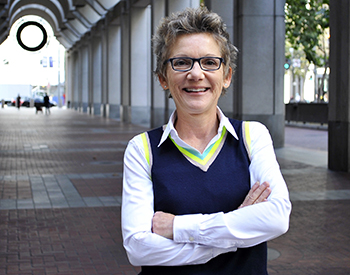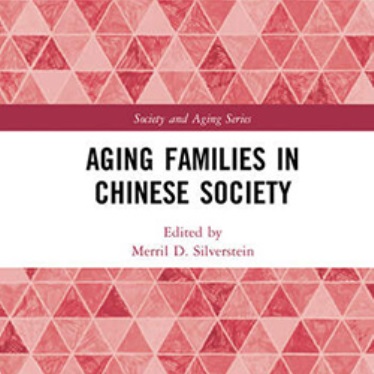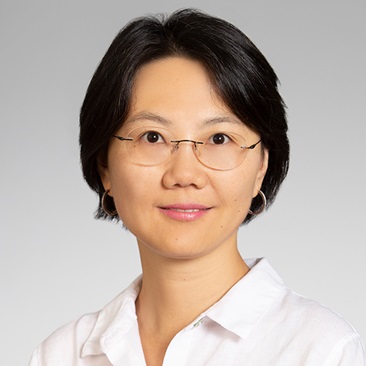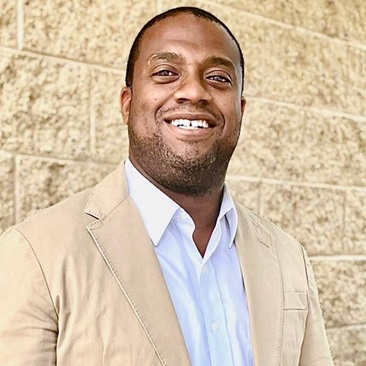Mary Daly’s Crooked Path
June 1, 2019
 For Mary Daly, the economic struggles that many Americans face—to put food on the table, to put a roof over their heads, to give children a stable upbringing so they can go to school—is more than a theoretical concern.
For Mary Daly, the economic struggles that many Americans face—to put food on the table, to put a roof over their heads, to give children a stable upbringing so they can go to school—is more than a theoretical concern.
Yes, as head of one of the largest branches of the Federal Reserve, she works daily to monitor and analyze economic data—wages, prices, interest rates, employment rates, consumer confidence—to help U.S. policy makers decide how to keep inflation low and unemployment steady.
Yes, as an expert in the field of labor economics, she has focused her career on how labor markets work—who’s hiring, who’s firing, who’s looking, who’s waiting, who’s despairing, who wants higher minimum wages, where do people work, and why. It’s been her focus since earning her PhD in economics from the Maxwell School in 1994.
But for Daly the economic struggles are also personal, a reflection in part of her own experience four decades ago just outside of St. Louis, Missouri, where her family’s difficulties led to her dropping out of high school at age 15.
“We lived pretty close to the bone, as we say in the Midwest. You know, we were just a shock from falling through,” she has said.
The trajectory of Daly’s career stretches from those difficult days, 41 years ago, to today, where she is now in her second year as president and chief executive officer of the Federal Reserve Bank of San Francisco—which is the largest district, both geographically and economically, of the U.S. central banking system. The roots of her current prominence thrived, in no small part, in intellectual soil she found at Maxwell (including, she says, in the break room at Maxwell’s Center for Policy Research—but more on that later).
Daly is also one of only three women among the 12 presidents of the Fed’s regional banks, which gives her an additional perch from which to highlight the persistent lack of diversity—gender, yes, but also race and ethnicity—within the profession of economics.
“Frankly, I’m not exceptional in the kinds of things that happened to me as a young person. These are things that happen to many young people in many families. And it resulted in me dropping out,” she says. “The remarkable part is that I was able to find a mentor to help me sort of lift myself out, to get escape velocity so I could get through that and then go on to contribute in the way I was capable of.”
In May, when Daly returned to Syracuse University to receive an honorary degree and give the Commencement address, she touched on her “crooked path,” offering students advice her mentor—a woman named Betsy Bane—offered her as a teenager adrift:
“Don’t worry if your journey wanders, or if your seemingly perfect plans end up being not quite right. This is just part of exploring, and it helps you figure out what’s right for you,” she told the 7,000 graduating students. “And when something goes wrong, and fear and worry creep in, I hope you’ll remember Betsy’s words: ‘You have to bloom where you’re planted.’”
Growing up in a suburb just southwest of St. Louis, Daly was part of a single-income family. Her father was a postman, her mother a homemaker. When she was 15, her family was hit by a set of shocks and “imploded,” as she recently described it. Her parents divorced. Her three younger siblings went to live with their grandparents. Daly lived with friends, dropped out of high school, and took a series of jobs to make ends meet. She worked in a deli, delivered doughnuts, sold lingerie at a department store.
Though Daly had dropped out, a guidance counselor at school connected her with Bane, a psychologist.
“Betsy was in her mid-30s, a successful woman, busy building her life and career,” Daly recalled, in her Commencement address. “I was 15, my family was in chaos, I’d dropped out of high school, and I was living with friends. My counselor thought Betsy could help.”
Bane pushed Daly to get her high-school equivalency degree, and she later encouraged Daly to take classes at the University of Missouri’s campus in St. Louis. She paid for Daly’s first semester at school: $216 for a full term. Daly started out studying psychology, but she struggled with it.
“It became clear that I probably wasn’t cut out for that,” she says now. “I’m not the most patient person in the universe. I’m great at research and less good at one on one, though I’ve gotten better at that in my life, largely thanks to my wife,” she adds, laughing.
During her initial semester, Daly failed a couple of classes as she struggled to adjust to college life. Eventually, she would work on campus as a tutor for other students, which helped her own studying. She took a course called The History of Social Science, which proved pivotal. The University of Missouri professor who taught it was Maxwell graduate Frank “Gene” Wagner ’67 PhD (Econ), and he became the next key advisor on Daly’s journey. Wagner told her something that one of his mentors had said: “Your mind is like a big open room and you want to fill it with all the things that make you interested and curious and keep you engaged.”
“And so I started taking classes: The History of Social Science, The History of Thought and Economics,” she says now. “And what I ended up finding is that I really had an affinity and a love for thinking about the world the way economists do—not as a narrow person who’s just doing the math, but as a person who could use that lens to affect public policy.”
“Long before I was introduced to supply-and-demand and all the basic tools that economists have to know, I was introduced to what makes economics great,” she adds, “which is you’re curious about the world, and you try to study it, and you try to think about it like a detective: how things work and why people behave the way they do and what incentives they face.”
After getting a bachelor’s degree from the University of Missouri-Kansas City in 1985, she went on to earn a master’s degree at the University of Illinois at Urbana-Champaign in 1987 and then (with Wagner’s encouragement) her doctorate in economics at Maxwell, in 1994. It was at Maxwell that she discovered what she calls her “North Star”—the purpose that drove her research on microeconomics and labor economics: fiscal policies geared at serving others. After two years of postdoctoral work at Northwestern University, she joined the San Francisco Fed, where it seemed symbolic that Janet Yellen worked, as she would later become the first woman to head the entire U.S. Federal Reserve system.
Daly’s books and publications reflect both her personal and academic interests. Her postdoctorate work at Northwestern was a fellowship from the National Institute of Aging. Her first published book, which she co-authored with Cornell University economist Richard Birkhauser, examined how household incomes move up and down, and examined trends in income inequality in the 1980s. In 2013, her third book, which she co-edited, analyzed how unexpected life events—job loss, health problems, divorced parents—affect a person’s, or household’s, economic welfare.
And a year later, she and another economist published a widely noted paper that studied wage data in the aftermath of the great recession of 2008-09. The paper analyzed so-called “wage rigidities”—where employers are slow to cut wages in a downturn and slow to raise them in a nascent recovery—and found that this phenomenon may have helped slow down inflation, not only after 2008, but in two previous recessions, as well. It was an analysis that went against the grain of many widely held assumptions in economics.
Another theme runs prominently through her research: the lack of diversity in the field of economics, symbolized by a 1997 event that occurred not long after she joined the San Francisco Fed. She had given a major presentation at the Fed’s headquarters in Washington, D.C., after which, she says, a senior banker congratulated her by saying: “That was amazing. I didn’t expect that. You’re such a tiny little woman. Who knew?”
“I don’t think he realized what he was implying. Though I and others did. We laughed it off,” she wrote in a first-person essay for the Financial Times in 2018.
The field has changed since then, Daly says, but not enough. Whereas STEM fields—science, technology, engineering, and mathematics—have made strides in recruiting and retaining professionals who are not white men, economics still lags.
“The economics profession [needs] to invite in people with diverse opinions and backgrounds. And then we need to treat them like they belong there.”
Mary Daly '94 Ph.D. (Econ)
President, San Francisco Federal Reserve
Underrepresentation connects to inequality, of course, and inequality is a theme that has run through Daly’s career. She’s interested in how differences in “inputs”—that is, root causes—lead to inequalities in wages and jobs. And, she says, she’s noticed that educational access, particularly above the undergraduate level, varies widely by ethnicity, gender, and, importantly, socioeconomic class.
“That’s the context in which I now look at the economics profession. You see that the profession has been stuck in time for 30 years in terms of equalizing gaps by gender, and gaps by race and ethnicity,” she says. “African American and other people of color and women are underrepresented by quite a lot in economics, and we haven’t been getting better over the past decade.
“This is a solvable problem,” she adds. “And part of the solution is for the economics profession to invite in people with diverse opinions and backgrounds. And then we need to treat them like they belong there. We have to give them voice.”
When she’s not studying inequalities in labor markets, or helping to guide decision making on interest rates, Daly likes to paint, mountain bike, ski, and hike, often with her wife, Syracuse University alumna Shelley, with whom she lives in Oakland. And she sculpts, in metal, often using found objects.
“Mostly I just make [the sculptures] and put them around the house,” she says. “People come over and, if they like one, I give it to them.”
Daly has also embraced a newer art form: podcasting. Called Zip Code Economies and launched in 2018, the endeavor is, she says, “the most important project I’ve ever done in my career.”
“We go out into the communities and talk to people,” she says. “And as I talk to people and hear their stories, I am able to amplify them and give them ‘voice.’”
“I learned this when I was in graduate school—that you solve problems one person, one community at a time,” she adds. “It really gives some fabric to what I learned at Maxwell—that we think about making big broad policy proclamations but, ultimately, we have to be on the ground advocating on the policies and lifting people up as individuals, families, and communities.”
That mash-up of interests—professional and personal, wonky academics and street-level podcasting—also, in some ways, traces back to her time at Maxwell. “I learned three things from my time in Maxwell and the Center for Policy Research,” she said earlier this year. “I do my best work in collaboration with others, the best researchers and scholars are devoted to making lives better, and you get more work done by influencing others instead of focusing on power.”
When asked to elaborate, she tells us about not just the Center for Policy Research, but the large central space where refrigerator, microwave, and copy machine reside, with a large central table where CPR faculty, staff, and students sometimes informally gather.
“You could go and eat your lunch, and the beauty of that was that every possible discipline would show up and all sorts of professors and grad students would show up and there was a flatness to that organizational structure that allowed the dialogue to form,” she says.
“I probably learned more in that break room than I learned anywhere else at Maxwell, because people were so open and free and we had all sorts of discussions. And I think that’s part of what makes Maxwell strong,” she concludes, “that sense of community dialogue.”
By Mike Eckel
This article appeared in the fall 2019 print edition of Maxwell Perspective © Maxwell School of Syracuse University.
Related News
Research

Apr 15, 2024
Commentary

Apr 13, 2024
Commentary

Apr 12, 2024
